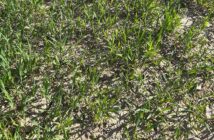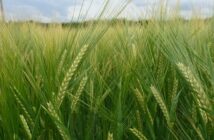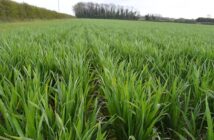Farmers at the Leicester Monitor Farm meeting on 10 January were encouraged to make the most of free resources available.
The meeting covered soil health, crop nutrition and cover crops.
Harry Henderson, AHDB Cereals & Oilseeds Knowledge Exchange Manager, said: “Farmers’ own knowledge and that of their neighbours, as well as sunlight, water and soil are all freely available and should be the first port of call.
“Solutions for today’s farming problems aren’t going to come out of a bag or bottle, and farmers already have access to a huge wealth of knowledge.”
The first presentation was given by Ian Robertson of Sustainable Soil Management, who talked on nutrient use efficiency and how it is vital to look at whole systems. He showed how in tissue analysis, farmers should consider the levels of nutrients in relation to nitrogen, rather than in isolation, because in his opinion the nitrogen would dilute the other nutrients.
Ian said: “You should also look at peak demand and work out what your crop needs and when. You have to know what is limiting you.
“Bear in mind that indices are not as important as the function of the nutrients. It’s important to make sure that the top 15cm of the soil is physically, chemically and biologically balanced.”
He added: “Your most important tool is your spade, then your brain.”
The second speaker was Clive Bailye from TWB farms who shared his cover crop experiences.
Six years ago, Clive and his farm team adjusted their management practices to cut their reliance on subsidy payments which he has achieved. His approach now is based on making the most of freely-available water and sunlight, especially in August and September between harvest, direct or no-till drilling as conditions dictate and the introduction of cover crops and livestock
Clive said: “In the last 20 years, we farmers have stopped thinking for ourselves. But we couldn’t farm without subsidies like that. Our grandparents knew a lot of what we’re rediscovering and we need to start thinking for ourselves again.”
He also spoke about his soils, saying that, in his opinion, soil management is now more about regenerating damaged soils than it is about sustaining them – the damage has been done.
This was something that rang true with Monitor Farm host Jack Smith: “It was a good point. We’ve all looked at the sustainability of soils and not trying to degrade them any further. But actually we’ve degraded them so far that we now need to pick them back up again. This is something we’ll endeavour to do here, bringing livestock manure back into the rotation and cover crops to improve them.
“Soil management for us now is about the simple things.”
Cover crops
Jack has grown cover crops for two seasons on one of his fields. The field was the subject of a study by Rothamsted scientist Dr Jackie Stroud.
“From Jackie Stroud’s research it looks like we can use cover crops to help improve the stability of our soils. Rather than just maintaining the level we already have, we can hopefully improve it,” Jack said.
A laboratory test comparing soil stability of two of Jack’s fields seemed to show that cover crops had improved the soil stability.
Jack has been growing a simple black oat and clover mix.
He said: “It was interesting to hear that Clive wasn’t growing many grass species at all – they were mostly broad-leaf cover crops. I think we need to look at the different options more carefully.”
Get involved
At the next meeting at the Leicester Monitor Farm on 14 February, the group will discuss what conventional arable farming can learn from the organic sector.
Farmers interested in joining the Monitor Farm should contact harry.henderson@ahdb.org.uk or call 07964 974465.
[youtube http://www.youtube.com/watch?v=joXx1D4ECU4&w=560&h=315]



